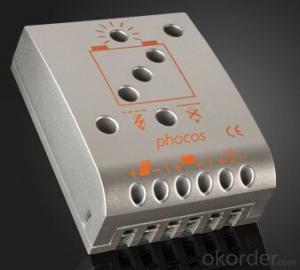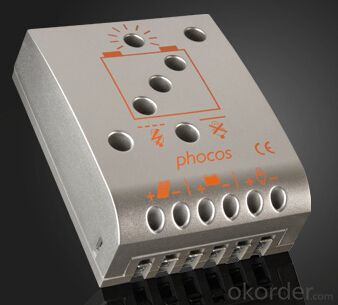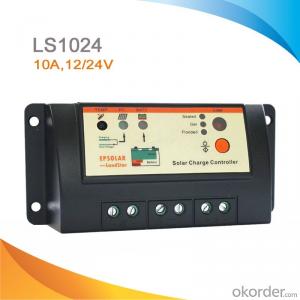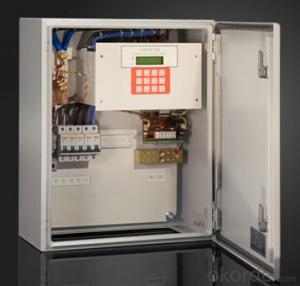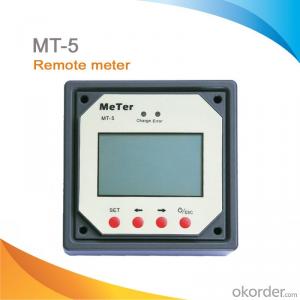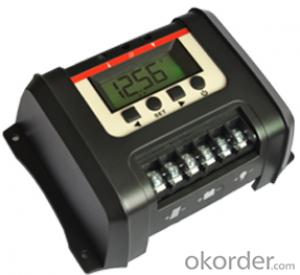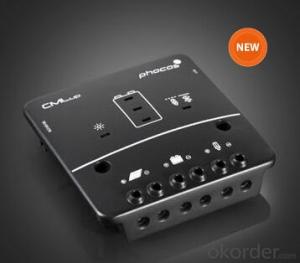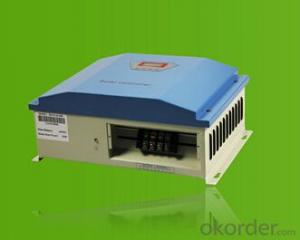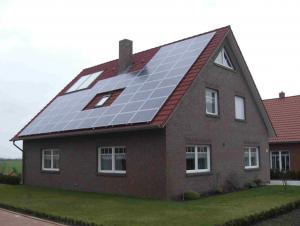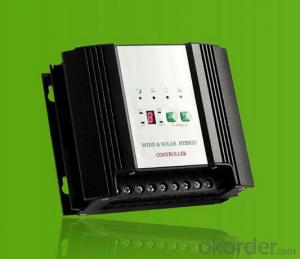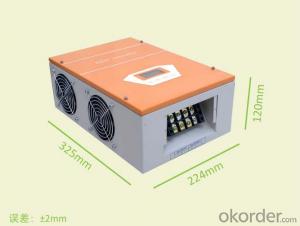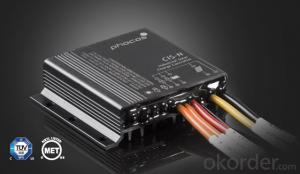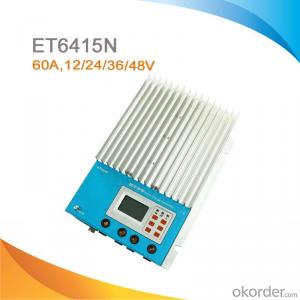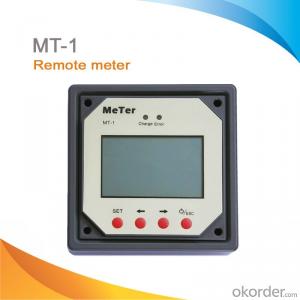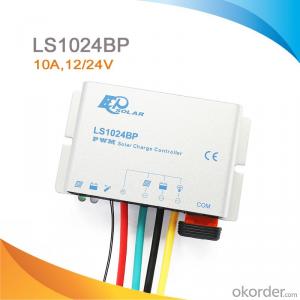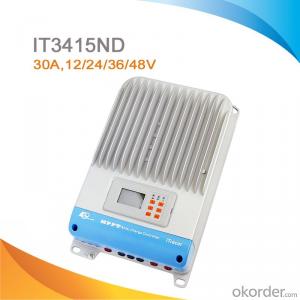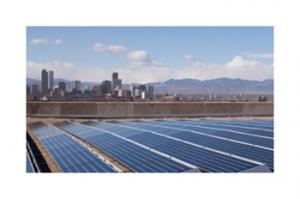CML Series (5-20A) MPPT Solar Charge Controllers
- Loading Port:
- China Main Port
- Payment Terms:
- TT OR LC
- Min Order Qty:
- -
- Supply Capability:
- 10000 unit/month
OKorder Service Pledge
OKorder Financial Service
You Might Also Like
· Battery State-of-Charge display with 3 LEDs
· Acoustic load disconnect pre-warning
· PWM-regulation (series type)
· Boost, equalize and float charging, also for VRLA
· Automatic 12/24 V detection
· Integrated temperature compensation
· Large terminals (up to 16 mm2wire size)
· SOC and voltage controlled LVD
· Fully electronically protected
· The CML series is a sophisticated solar charge controller family for low cost applications. The electronic circuit is equipped with a microcontroller that provides high- efficiency charging technology together with a number of outstanding status display, warning and safety functions. The temperature-compensated three-stage PWM charging method (boost-equalization-float) is now adjustable tosealed and vented lead-acid batteries. The new version also allows an either SOC or voltage controlled low voltage disconnect function. The battery status is clearly indicated by three LEDs.
· As the first controller on the market in this price range it comes with an acoustic low voltage load disconnect pre- warning feature.
- Q: Can a solar controller be used with solar-powered gates?
- Yes, a solar controller can be used with solar-powered gates. The solar controller helps regulate and optimize the charging of the gate's solar panels, ensuring efficient power utilization and preventing overcharging or damage to the batteries. It also allows for monitoring and controlling various functions of the gate system, such as opening and closing times, security features, and power management.
- Q: Can a solar controller be used with a solar-powered hospitality industry?
- Yes, a solar controller can be used with a solar-powered hospitality industry. A solar controller is an essential component of a solar power system that regulates the flow of energy from the solar panels to the batteries or grid, ensuring optimal charging and preventing overcharging or damage to the system. In the hospitality industry, where energy demands can vary and be substantial, a solar controller helps manage and maximize the use of solar power, allowing for efficient and sustainable operations.
- Q: Can a solar controller be used with a solar-powered lighting system?
- Yes, a solar controller can be used with a solar-powered lighting system. The solar controller helps regulate and control the charging and discharging of the battery used in the lighting system, ensuring optimal performance and longevity of the system.
- Q: How does a solar controller handle variations in solar panel current?
- A solar controller handles variations in solar panel current by regulating the amount of power flowing from the solar panels to the batteries or load. It monitors the current output of the solar panels and adjusts the charging parameters accordingly to prevent overcharging or undercharging of the batteries. This ensures optimal utilization of the solar energy and extends the lifespan of the battery system.
- Q: Can a solar controller be used with solar panels that have different orientations?
- Yes, a solar controller can be used with solar panels that have different orientations. The primary function of a solar controller is to regulate the flow of energy between the solar panels and the battery or load. It monitors the voltage and current coming from the solar panels and ensures that the battery is charged efficiently and safely. While it is generally recommended to have solar panels facing the sun directly for maximum efficiency, it is still possible to use panels with different orientations. In such cases, the solar controller will adjust the charging parameters to accommodate the varying input from the panels. It will optimize the charging process by adjusting the voltage and current levels to match the battery's requirements. However, it is important to note that using panels with different orientations may affect the overall efficiency and performance of the solar system. The total output power will be determined by the panel with the least optimal orientation. Therefore, it is advisable to install solar panels with similar orientations to maximize the overall energy production. In conclusion, a solar controller can be used with solar panels that have different orientations, but it may result in reduced efficiency and performance. It is best to have panels facing the sun directly for optimal energy production.
- Q: Can a solar controller be used in a solar-powered refrigeration system?
- Yes, a solar controller can be used in a solar-powered refrigeration system. A solar controller is responsible for regulating the flow of electricity from the solar panels to the refrigeration system, ensuring optimal performance and preventing damage to the system. By controlling the charging and discharging of the batteries, a solar controller helps maintain a stable power supply for the refrigeration system, making it an essential component in a solar-powered refrigeration setup.
- Q: Can a solar controller be used with both lead-acid and AGM batteries?
- Yes, a solar controller can be used with both lead-acid and AGM batteries. Solar controllers are designed to be compatible with various battery types, including both lead-acid and AGM batteries. They regulate the charging process and prevent overcharging, regardless of the battery chemistry, ensuring optimal performance and lifespan of the batteries.
- Q: What is the maximum power rating that a solar controller can handle?
- The maximum power rating that a solar controller can handle depends on the specific model and manufacturer. Generally, solar controllers are designed to handle a certain maximum wattage or current in order to regulate the energy flow from the solar panels to the battery bank. This maximum power rating is typically specified by the manufacturer and can vary greatly. It is important to choose a solar controller that can handle the maximum power output of the solar panels being used. Exceeding the maximum power rating of a solar controller can lead to overheating and potential damage to the controller. Therefore, it is crucial to consult the specifications provided by the manufacturer or seek professional advice to determine the appropriate solar controller for a given solar panel system.
- Q: Can a solar controller be used with a solar-powered satellite communication system?
- A solar-powered satellite communication system can utilize a solar controller. This device, also referred to as a charge controller, is crucial in solar power systems. Its primary purpose is to regulate the charge entering the batteries from the solar panels and prevent overcharging or undercharging. In the context of a solar-powered satellite communication system, the solar controller plays a vital role in ensuring proper battery charging to maintain a consistent power supply for the communication equipment. This is particularly crucial in satellite systems where continuous communication relies on an uninterrupted power source. The solar controller's function involves monitoring the voltage and current output from the solar panels and adjusting the charging rate accordingly. It optimizes the charging process to maximize the utilization of solar energy while safeguarding the batteries against any potential damage. Furthermore, the solar controller also provides protection against overvoltage, overcurrent, and short circuits that may arise from fluctuations in the solar power system. To summarize, a solar controller is an indispensable component that can effectively regulate and optimize battery charging in a solar-powered satellite communication system. Its presence ensures a reliable and uninterrupted power supply.
- Q: Can a solar controller be used in a solar-powered electric fence system?
- Yes, a solar controller can be used in a solar-powered electric fence system. A solar controller helps regulate the charging and discharging of the batteries in the system, ensuring efficient and effective operation of the electric fence.
Send your message to us
CML Series (5-20A) MPPT Solar Charge Controllers
- Loading Port:
- China Main Port
- Payment Terms:
- TT OR LC
- Min Order Qty:
- -
- Supply Capability:
- 10000 unit/month
OKorder Service Pledge
OKorder Financial Service
Similar products
Hot products
Hot Searches
Related keywords
